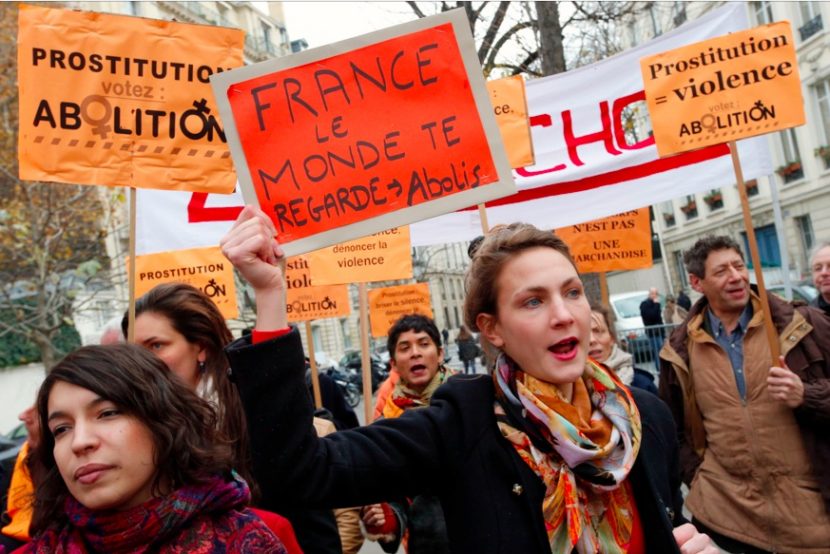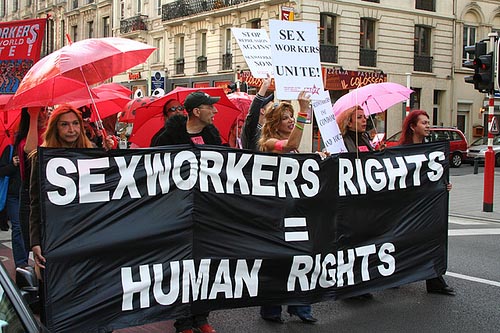Earlier this month, a China TV report on prostitution throughout the city of Dongguan provoked the public’s ire — but not for the reasons one might assume. Rather than chastising sex work itself, many critiqued the report for its portrayal of victimhood that denied agency to those who choose sex work.
“There has been a big change of opinion on this topic,” Ye Haiyan, an activist and former prostitute, told Julie Makinen of the Los Angeles Times. “Before, people used to just criticize sex workers when such news was presented, but now people are more sensitive to how these workers survive, and also to how corruption contributes to it.”
Haiyan’s opinion questions how media coverage and legal language both use sex work ethics to contort a far more overarching problem: human trafficking.
While researching the French debate on prostitution, London-based Journalist Valeria Costa-Kostritsky was told, “For the [French Minister of Women’s Rights], prostitution is to be considered mainly as a violent act, and that matters more than the unconditional right to exercise this profession.” Maxime Ruszniewski-Bryner, press advisor to Minister Najat Vallaud-Belkacem, expanded on this statement by arguing, “in Sweden, where clients of prostitution have been criminalised since 1999, prostitution has decreased by half.”
Costa-Kostritsky has her own thoughts on Sweden’s law. Her research sought to evaluate the country’s choice to make buying sex a crime. Rather than being arrested for their profession, prostitutes working in Sweden are not criminally charged. If they wish to quit prostitution, they receive help from social services. Should they choose to continue their work, they are free to do so.
At face value, it seems ideal: By punishing johns rather than prostitutes, Sweden aims to offer sex workers more agency. But Costa-Kostritsky sees this as simplification of sex work discourse that obscures a much larger issue — a decrease in safety and increase in stigma that obscures the global trafficking industry.
“Have a look at big lobbies like Coalition against Trafficking in Women (CATW) and European Women Lobby,” Costa-Kostritsky said in an interview. “I think they’re basically using the fact that trafficking exists and the fact that it is horrible and little known to encourage more repressive laws against sex work.”
Continue reading at PolicyMic…








[…] What the Media Gets All Wrong About Sex Work […]
[…] What the Media Gets All Wrong About Sex Work […]
And people wonder why the Chinese are dusting us off as a world economic power. See, for all their problems, they do still believe in quaint things like logic and reason over there. And they know a scam when they see one. In short, they live in a reality-based world, unlike the pack of demented crones over here who have made suppressing sex commerce their lifetime gig.
[…] What the Media Gets All Wrong About Sex Work […]